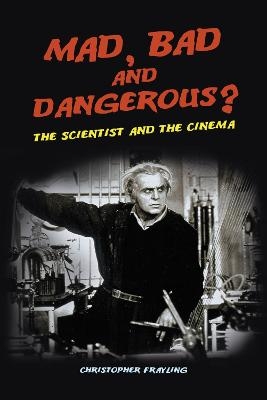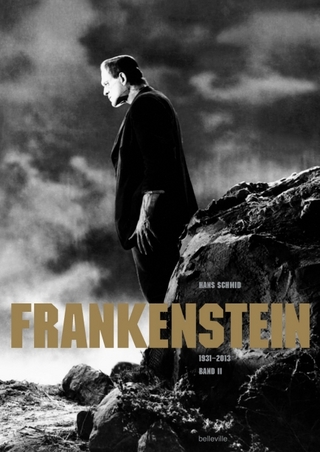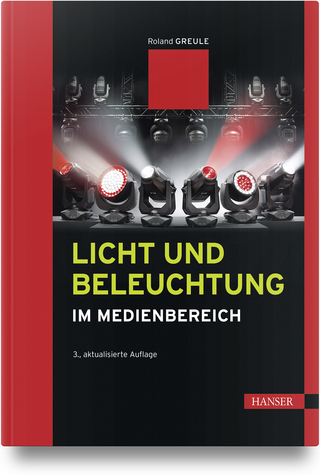
Mad, Bad and Dangerous?
The Scientist and the Cinema
Seiten
2005
Reaktion Books (Verlag)
978-1-86189-255-3 (ISBN)
Reaktion Books (Verlag)
978-1-86189-255-3 (ISBN)
- Titel ist leider vergriffen;
keine Neuauflage - Artikel merken
Christopher Frayling explores the genealogy of the film scientist in film from its beginnings to the present day, from early films such as Frankenstein and Metropolis, to cult films of the 1950s such as 'The Day the Earth Stood Still' and modern blockbusters such as the 'Alien' series.
Since its origin cinema has had an uneasy relationship with science and technology: scientists are almost always impossibly mad or impossibly saintly, and technology is nearly always very bad for you. In Mad, Bad and Dangerous?, Christopher Frayling explores the genealogy of the film scientist in films made in Western Europe, and especially in Hollywood after the 1930s, showing how in film the scientist has often been used to represent the prevailing phobias of the time. In the 1950s, for example, films were dominated by the fear of botched atomic research, and were a showcase of mutated, outsized creatures and radioactive zombies. Since Hitchcock?s The Birds, however, the role of the scientist has been less straightforward, and by the 1970s damage to the environment and the spread of diseases were the predominant consequences of science gone wrong. Scientists ? and the corporations that controlled them ? became the ?baddies?.
The author also examines in parallel the portrayal of real-life scientists in the movies, noting how they are in the main depicted as misfits, immersed in their work, sacrificing any normal life to the interests of science, yet distrusted by the scientific establishment. Interestingly, the cinematic portrayal of fictional and real-life scientists follow very similar dramatic conventions, and Frayling concludes that the mad scientist and the saintly one are two sides of the same Hollywood coin.
Since its origin cinema has had an uneasy relationship with science and technology: scientists are almost always impossibly mad or impossibly saintly, and technology is nearly always very bad for you. In Mad, Bad and Dangerous?, Christopher Frayling explores the genealogy of the film scientist in films made in Western Europe, and especially in Hollywood after the 1930s, showing how in film the scientist has often been used to represent the prevailing phobias of the time. In the 1950s, for example, films were dominated by the fear of botched atomic research, and were a showcase of mutated, outsized creatures and radioactive zombies. Since Hitchcock?s The Birds, however, the role of the scientist has been less straightforward, and by the 1970s damage to the environment and the spread of diseases were the predominant consequences of science gone wrong. Scientists ? and the corporations that controlled them ? became the ?baddies?.
The author also examines in parallel the portrayal of real-life scientists in the movies, noting how they are in the main depicted as misfits, immersed in their work, sacrificing any normal life to the interests of science, yet distrusted by the scientific establishment. Interestingly, the cinematic portrayal of fictional and real-life scientists follow very similar dramatic conventions, and Frayling concludes that the mad scientist and the saintly one are two sides of the same Hollywood coin.
Christopher Frayling is rector of the Royal College of Art, London; chairman of the Arts Council of England; and a well-known historian, critic, and award-winning radio and television broadcaster. He is also the author of Spaghetti Westerns and Vampyres: Lord Byron to Count Dracula.
| Erscheint lt. Verlag | 1.10.2005 |
|---|---|
| Verlagsort | London |
| Sprache | englisch |
| Themenwelt | Kunst / Musik / Theater ► Film / TV |
| ISBN-10 | 1-86189-255-1 / 1861892551 |
| ISBN-13 | 978-1-86189-255-3 / 9781861892553 |
| Zustand | Neuware |
| Haben Sie eine Frage zum Produkt? |
Mehr entdecken
aus dem Bereich
aus dem Bereich
Filmtechnik, Bildgestaltung und emotionale Wirkung
Buch | Hardcover (2024)
Carl Hanser (Verlag)
CHF 62,95


